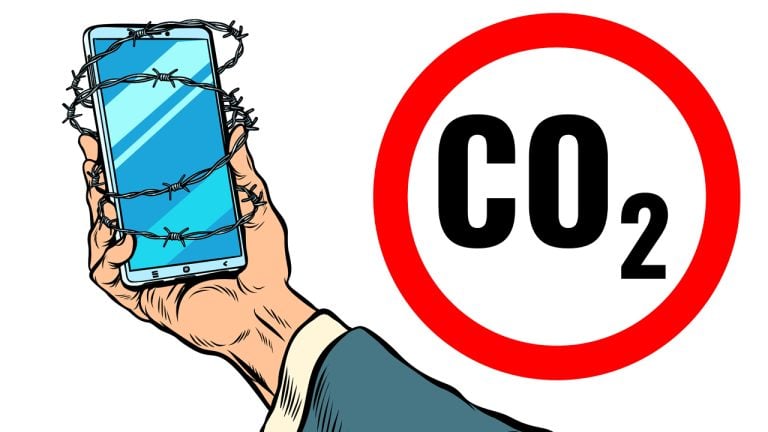
On April 13, a C6 Bank customer in Brazil shared screenshots of his online bank account, revealing that the financial institution was tracking CO2 emissions from his purchases and urging him to compensate monetarily. C6 Bank states that the new tool aims to inspire Brazilians to adopt more sustainable behaviors.
‘CBDC Preview’ — Bank Customer Explains How His Brazilian Bank Monitors Transactions for CO2 Emissions
In recent years, politicians have pushed banks to adhere to environmental, social, and corporate governance (ESG) objectives. This has led financial institutions to focus on climate change, equality, and social justice. On Thursday, Dr. Simon Goddek, CEO of Sunfluencer and a C6 Bank customer, described how his bank is already utilizing tools that monitor customer transactions related to CO2 emissions. The bank calculates the estimated carbon footprint for each transaction conducted with the account.
Dr. Goddek tweeted, “My Brazilian bank, C6 Bank, is now tracking my CO2 emissions from purchases, travel, etc., and strongly encouraging me to compensate monetarily for them. I predicted this development two years ago, and now it seems to be slowly coming true. Welcome to the dystopian world we live in.” He also noted that JPMorgan has a significant stake in C6 Bank and suggested it could foreshadow similar developments in the United States. JPMorgan Chase owns a 40% stake in C6 Bank, a Brazilian digital financial institution established in 2019.

C6 Bank introduced the new CO2 banking tool on April 3 and detailed its primary function: to analyze the consequences of CO2 emissions into the atmosphere while serving as an indicator for implementing sustainable measures. Named “Carbon Extract,” the tool monitors CO2 emissions from everyday expenses made with debit and credit cards as well as transfers and Pix transactions.

In conjunction with announcing this banking tool, C6 Bank declared that it had “zeroed its carbon emissions.” Dr. Goddek’s Twitter thread sparked considerable criticism toward the banking industry’s approach to climate change solutions. On the Reddit r/bitcoin forum, the tool was referred to as a “preview” of central bank digital currency (CBDC).
Several Financial Institutions Are Adopting Climate Change Tracking Tools to Monitor Spending
In the Reddit post, a user mentioned that Turkey’s Garanti Bank also offers a CO2 emissions banking tool. “It’s coming,” the Redditor warned, “They just need to create the necessary crises to introduce it on a global scale.” In May 2022, Garanti BBVA introduced its carbon footprint tool, which calculates customers’ carbon emissions based on their banking transactions. Several banks and major payment services worldwide have developed tools to measure customers’ transactional carbon footprints. For example, Mastercard created a carbon calculator tool for this purpose.
Moneythor analyzes customer transaction data to estimate CO2 output, while Personetics has developed a customer-based carbon footprint monitoring tool. Bud, an open banking fintech company, offers a carbon emissions tool, and fintech firm Cogo’s research suggests that 75% of banking customers desire information related to such data. Digital bank Meniga also argues that banks should provide estimates of their customers’ CO2 output. Critics of these technologies claim they may ultimately lead to transaction censorship and account closures. This comes at a time when banks globally are already closing customer accounts without much explanation, as reported by The New York Times on April 8, 2023.
What do you think about banks tracking their customers’ carbon footprints through transactional data? Do you believe this is a necessary step towards a more sustainable future, or an invasion of privacy and potential censorship of financial activity? Share your thoughts in the comments below.
from Bitcoin News https://ift.tt/9GtCZPi
via NEWS BTC

Post a Comment